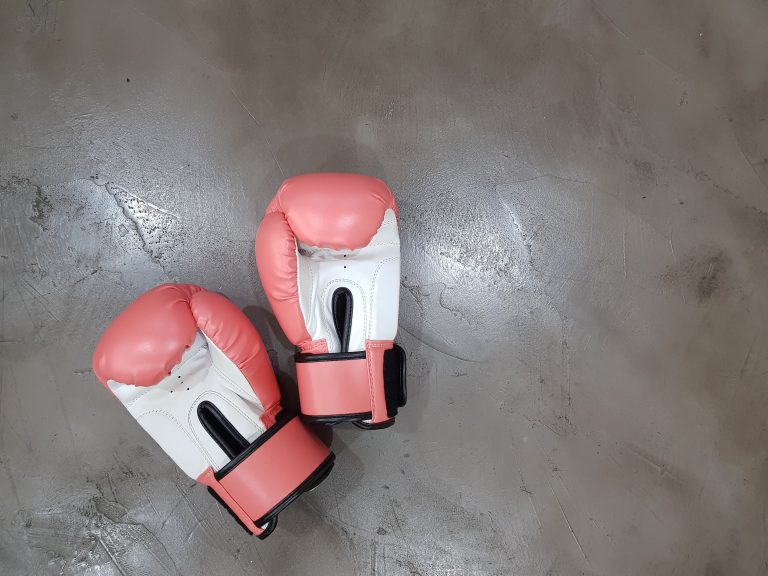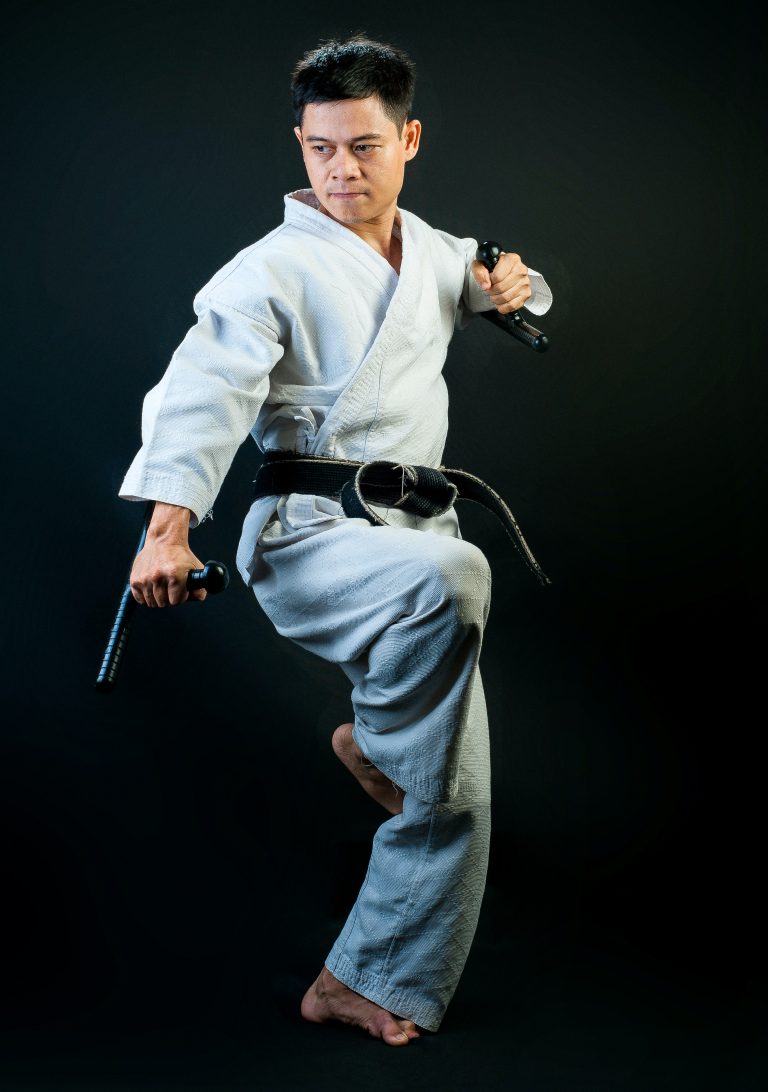What Karate Teaches You: Insights into the Skills and Values Taught by This Martial Art
Karate is a martial art that has been widely practiced around the world for centuries. Though it originated in the Ryukyu Islands of modern-day Okinawa, Japan, it has since become popular worldwide. Karate is an activity that not only provides a physical challenge but can have a significant impact on the mental and emotional facets of someone’s life. It instills an array of skills and values that can be applied not only to self-defense but to many aspects of everyday life.
In this article, we’ll take a closer look at what karate teaches you, including its physical, mental, and emotional benefits.
Physical Benefits
One of the most apparent benefits of karate practice is physical fitness. Karate involves a plethora of intense physical activities that help students stay in shape. The regular practice of karate can significantly enhance your strength, balance, flexibility, and agility.
Moreover, karate also teaches hand-eye coordination and reaction speed, making it a useful activity for athletes in other sports. Karate also helps students develop correct posture and breathing techniques, which are beneficial for overall health.
Mental Benefits
Karate is an excellent activity for mental health, as it teaches practitioners to stay focused, disciplined, and patient. Concentration is a crucial part of karate practice as students need to be able to focus on their movements and the movements of their opponents.
Karate also instills discipline and dedication in its practitioners. It is a challenging martial art that requires effort and hard work to progress, which helps students understand the value of perseverance and persistence.
Additionally, karate helps students develop self-confidence and self-esteem through their accomplishments. It provides a sense of accomplishment when someone progresses through the rank system and achieves new goals.
Emotional Benefits
Karate is not only beneficial for physical and mental health but also for emotional health. It teaches students to control their emotions and maintain composure, even in stressful situations.
The practice of karate also teaches people humility and respect towards others, regardless of their rank or background. It encourages students to understand and appreciate the importance of empathy, compassion, and kindness towards those around them.
Values Taught in Karate
Karate is not just about learning self-defense techniques; it also teaches certain values that are relevant to all aspects of life. The following are some of the values that karate practitioners should learn:
Respect
In karate, there is a traditional greeting between students, which signifies mutual respect. This tradition is a reminder that each student should have respect for their fellow practitioners, regardless of their rank or background. It encourages students to respect others in all aspects of life.
Honesty
Karate practitioners should always be honest, both with themselves and with others. Honesty is an essential aspect of self-improvement, as it helps students understand their strengths and weaknesses and work towards improving them.
Discipline
Karate requires a high level of discipline for someone to succeed. Practitioners must consistently show up to class, put in effort, and maintain a positive attitude. This discipline will help develop self-discipline that is useful in all aspects of life.
Perseverance
Karate is not an easy martial art to master, and progress can be slow. However, perseverance is essential for someone to advance through the ranks. Practitioners must persevere and remain dedicated to their goals, which will help develop resilience and a strong mindset.
What Karate Teaches You: Answering the Most Frequently Asked Questions
Karate is one of the most popular martial arts in the world, with millions of dedicated practitioners. It is not just a physical practice, but it is also a way of life that teaches discipline, respect, humility, and self-improvement. In this blog post, we will answer some of the most frequently asked questions about what karate teaches you.
What are the physical benefits of practicing karate?
Karate is a great workout that can improve your fitness level and your overall health. Here are some of the physical benefits of practicing karate:
- Improved cardiovascular health and stamina
- Increased flexibility and mobility
- Greater strength and muscle tone
- Better reflexes and coordination
- Improved balance and agility
What are the mental benefits of practicing karate?
Karate is not just a physical exercise, but it is also a mental practice that can help you develop important life skills. Here are some of the mental benefits of practicing karate:
- Increased self-confidence and self-esteem
- Greater focus and concentration
- Improved discipline and self-control
- Greater mental toughness and resilience
- Improved problem-solving and decision-making skills
What values does karate teach?
Karate is a way of life that emphasizes values such as discipline, respect, humility, perseverance, and self-improvement. These values are ingrained in every aspect of karate training, from basic etiquette to advanced techniques. Here are some of the values that karate teaches:
- Discipline: Karate training requires a great deal of discipline and self-control, which can help you develop good habits and routines.
- Respect: Karate teaches you to respect yourself, your instructors, your fellow students, and even your opponents.
- Humility: Karate teaches you to be humble and to approach learning with an open mind.
- Perseverance: Karate training can be challenging, but it teaches you to persevere through difficulty and to never give up.
- Self-improvement: Karate training is a constant process of self-improvement, where you strive to become a better version of yourself.
How does karate training help with self-defense?
Karate is a martial art that is designed to teach practitioners how to defend themselves in real-life situations. Here are some of the ways that karate training can help with self-defense:
- Techniques: Karate teaches a variety of strikes, kicks, blocks, throws, and joint locks that can be used to defend yourself.
- Practice: Karate training involves practicing these techniques in realistic scenarios, which can help you develop muscle memory and confidence.
- Mindset: Karate teaches you to be aware of your surroundings and to have the mindset of a warrior, which can help you react quickly and decisively in a self-defense situation.
Is karate suitable for everyone?
Karate is a martial art that is suitable for people of all ages and fitness levels. Whether you are a child or a senior citizen, and whether you are a beginner or an advanced practitioner, there is a style of karate that can meet your needs. However, it is important to consult your doctor before starting any new physical activity, especially if you have any pre-existing medical conditions or injuries.
How to Learn Karate
Karate is a popular form of martial arts that teaches discipline, self-defense, and physical fitness. If you want to learn karate, there are several steps you need to take to get started. In this post, we’ll go over a step-by-step guide on how to learn karate.
Step 1: Find a Local Karate School
The first step in learning karate is finding a reputable karate school in your area. Look for a school that has experienced instructors who are knowledgeable about karate and its principles. You can search online to find a karate school near you, or ask for recommendations from friends and family members.
Once you’ve found a few potential schools, take the time to visit them in person. Observe a class and see how the teachers interact with the students. Is the atmosphere friendly and welcoming? Do the instructors seem knowledgeable and enthusiastic?
Step 2: Decide on a Karate Style
There are several different styles of karate, each with its own unique techniques and philosophy. Before you start taking classes, it’s important to decide which style of karate you want to learn. Some common styles include Shotokan, Goju-ryu, and Wado-ryu.
Research each style to determine which one resonates with you the most. Look for a karate school that specializes in your chosen style.
Step 3: Start Taking Classes
Once you’ve chosen a karate school and a style, it’s time to start taking classes. Most schools will offer beginner-level classes that are specifically designed for new students.
During your first few classes, you’ll learn basic karate techniques such as punches, kicks, and blocks. You’ll also learn basic stances and footwork. Don’t worry if you don’t master these techniques right away – learning karate takes time and practice.
Step 4: Invest in Your Own Karate Gear
As you progress in your karate training, you’ll need to invest in your own gear. This may include a uniform, belt, gloves, and other protective gear.
Talk to your instructor about what gear you need to purchase, and where to purchase it. Make sure to invest in high-quality gear that will last for a long time.
Step 5: Practice, Practice, Practice
The key to mastering karate is practice. Make sure to attend classes regularly and practice your techniques at home. Set aside time each day to practice your punches, kicks, and blocks. Remember, the more you practice, the better you’ll become.
Step 6: Test for Your Belts
In karate, students progress through a series of colored belts as they master new techniques and skills. Each belt represents a different level of proficiency in karate.
Talk to your instructor about the belt testing process at your school. Make sure you understand what is required to advance to the next belt level, and set goals for yourself to achieve each belt.
Conclusion
Learning karate takes time, dedication, and hard work. By following these steps and practicing regularly, you can become a skilled karate practitioner. Remember, karate is not just about learning physical techniques – it’s also about developing discipline, confidence, and a strong sense of personal responsibility.
Inhaltsverzeichnis






